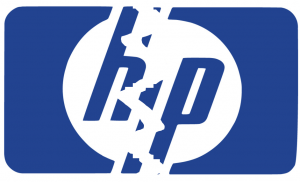 Almost a decade ago, IBM, the company that championed the personal computer as we know it, sold their PC division to Lenovo. It was fairly shocking at the time as IBM made some of the best corporate portables on the market but they felt it was better for them to focus on corporate software and service solutions rather than hardware. Now HP is looking to make a similar move with its . When Lenovo took over the IBM personal computer division, it continued to produce some quality computers and became more adventurous in their designs. But is the same going to hold true for HP’s new computer company?
Almost a decade ago, IBM, the company that championed the personal computer as we know it, sold their PC division to Lenovo. It was fairly shocking at the time as IBM made some of the best corporate portables on the market but they felt it was better for them to focus on corporate software and service solutions rather than hardware. Now HP is looking to make a similar move with its . When Lenovo took over the IBM personal computer division, it continued to produce some quality computers and became more adventurous in their designs. But is the same going to hold true for HP’s new computer company?
PC Market Woes
As those in the PC industry have been all to aware of, computer sales have been sliding badly for the past several years. Explanations have varied as to the cause of the slide but most point to the development of tablets, increasing use of smartphones and just the fact that computer performance has outpaced the software such that consumers don’t feel the need to buy new computers. Regardless of what the cause may have been, the profits and growth is certainly outside of the traditional PC and printer business. This is why Apple has been so successful as it transitioned from its PC business to the iPod and now the iPhone and iPad.
While HP has continued to have a large percentage of the PC business, it has not done well outside of the traditional PC markets. It attempted to produce a tablet with the WebOS that it purchased from Palm but when that didn’t succeed. Tt eventually dropped out and sold the operating system to LG. It also never really was involved heavily with the smartphone market even though it purchase Palm that had the early Treo smartphones.
Failed Attempt to Sell
Speculation on the split has also focused on the apparent but without any luck. It would have been extremely unlikely that another company would have purchased HP’s PC and printing business though. About the only candidates that would have been able to do that is Lenovo or Dell. Lenovo already has a market dominant position and Dell recently privatized to focus on rebuilding their business without market scrutiny.
Selling the business off would have been devastating for consumers. Already we have seen a number of smaller companies either leave the market or be absorbed by larger ones. This can be seen by the fewer number of options in the retail market when it comes to laptops and desktops available for purchase. The reduction in options means that consumers end up being hurt through lack of innovation and certainly pricing. Just look at how the computers that you find tend to fall into either budget or gaming categories. There is little middle ground support by manufacturers now.
So What About Consumers?
Even though HP is not going to be the same company, the fact that the HP brand will continue for personal computers and printers is a huge benefit to consumers. As mentioned before, it being sold off would have hurt consumer options greatly. There is still going to be affects in the market though as the newly formed company will be forced to show growth, something that is going to be hard with the existing consumer technology markets.
In the short terms, I expect the new HP Inc. to be focused on improving margins to help bolster its perception in the market. This means that there will probably be fewer options in terms of computers company from the company. Instead, they will try to standardize on a few designs to try and help reduce their costs.
The problem is that while capital markets focus on short term returns, the ultimate success of the company is going to have to be on the long term. With the emphasis on tablet and smartphones, HP is going to have to try and enter this market segment again. Eventually, they are going to try and put out new tablet and smartphones but it is not going to take the risks it did with WebOS. Instead, it will likely look to Android and Windows to make up for this. We can already see this with their low cost Windows laptop and tablets recently announced for this holiday season.
So, be glad that HP didn’t end up selling off their computing division but if the newly formed company fails to innovate or grow, consumers are going to face the same situation as if HP had sold off the division instead of making it a new company.
